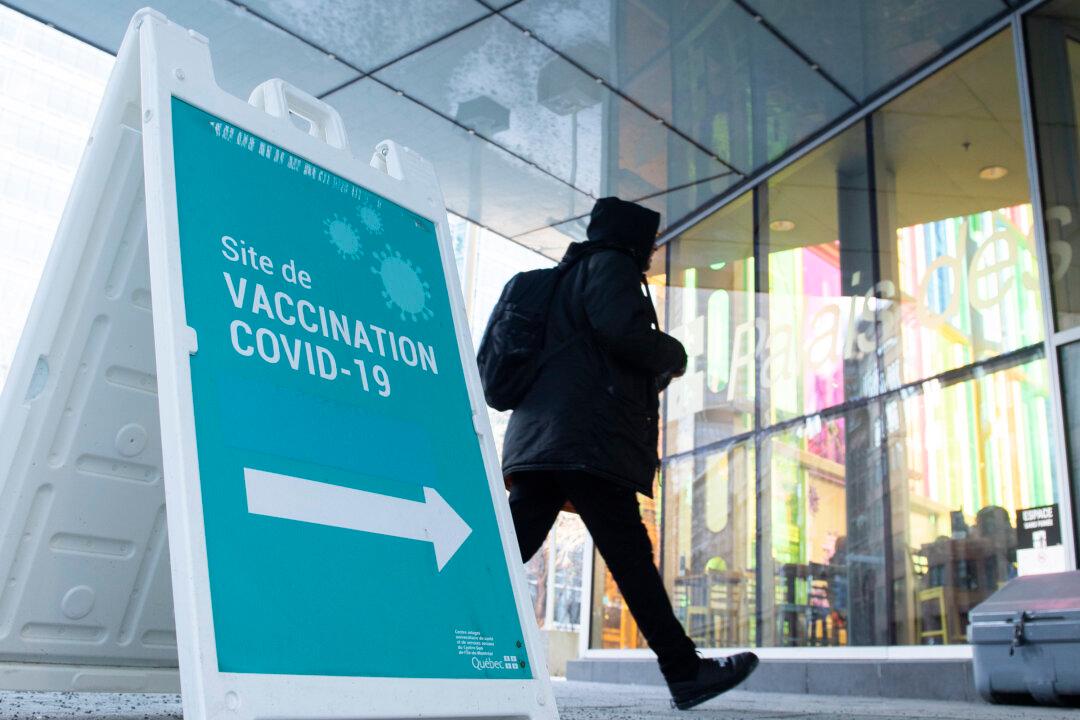The Canadian Armed Forces have been dispatched to assist in Quebec’s vaccination campaign as the province reported over 15,000 new COVID-19 cases on Jan. 3.
Public Safety Minister Bill Blair made the announcement on Twitter on Jan. 3, saying the decision came after the province made a request for aid.
“Following our approval of Quebec’s request for federal assistance, Canadian Armed Forces personnel will begin their deployment today to provide support to the province’s vaccination campaign,” Blair wrote.





